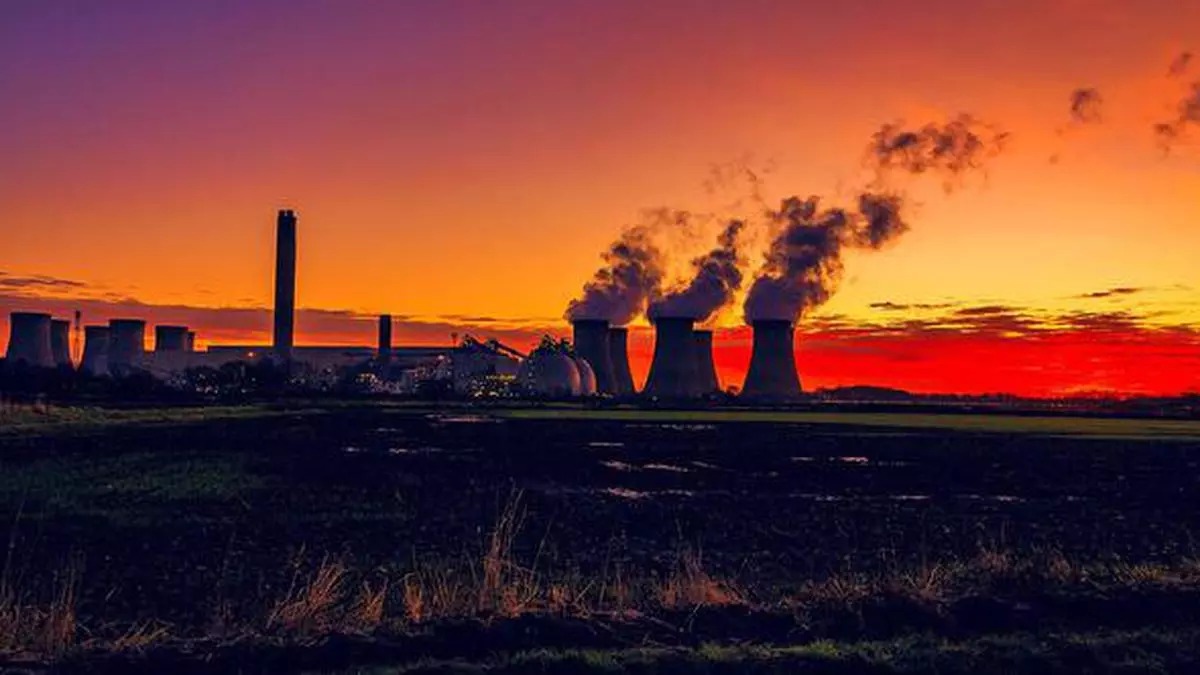India–US Trade Tensions Rise Over Steel and Auto Tariffs NMDC Limited reports a 38% drop in Q4 FY24 consolidated net profit RINL to Raise $23 Million Through Land Sales Amid Crisis

Finding a careful balance between economic growth and the urgent need to reduce emissions is a challenge in the pursuit of a sustainable future. The Department of Economic Affairs (DEA) has published a paper titled "The Indian Economy: A Review," which provides insight into India's complex viewpoint on this complex matter. While acknowledging the pressing need to ensure that countries have access to energy, the report cautions against a global strategy to combat climate change that could prolong the low-income position of vulnerable states. This article examines the report's main findings, highlighting the urgent necessity of a balanced strategy for development and emissions reduction.
Immediate priorities: Aligning energy access and climate concerns
The DEA research highlights a critical predicament that many countries face: the pressing need for reliable, inexpensive energy takes precedence over immediate worries about climate change. This is especially true for developing nations like India, where solving energy-related issues becomes urgently necessary. The paper cautions against adopting an overly strict global climate change policy because it may unintentionally keep these countries stuck in a cycle of ongoing poverty. This emphasises how crucial it is to deal with energy-related issues while also laying out a sustainable future path.
Development as a catalyst for effective mitigation
To promote resilience and facilitate successful climate action over the medium to long term, the report highlights the critical role that development plays. It goes beyond simple economic expansion by emphasising how development creates the resources required and improves the ability to carry out significant mitigating actions. Countries can invest in greener technologies, sustainable practices, and infrastructure by promoting economic growth. This not only aids in development but also helps reduce emissions.
Striking a global balance
Recognising the impracticality of a one-size-fits-all strategy, the international community is advised to strike a careful balance between development and emissions mitigation. The paper advocates for a practical strategy that takes into account the particular circumstances of each country, rejecting the idea that the trade-off between development and climate action should be ignored. India's approach, which strikes a balance between short-term expediency and a longer-term objective of decreasing reliance on fossil fuels, is a noteworthy illustration of how to negotiate this difficult terrain.
The role of pragmatism in India's climate policies
The research states that India's climate change plans are a combination of short-term practicality and a well-defined long-term objective of decreasing dependency on fossil fuels. The accomplishment of developmental priorities is the government's top priority. A wide range of legislative and regulatory initiatives are in line with the commitments to improve Nationally Determined Contributions (NDC) for 2030 and achieve net-zero emissions by 2070. Under the Mission LiFE concept, these steps seek to combine production and consumption patterns with a conscious and intentional focus on sustainable usage, avoiding damaging and unthinking consumption.
Evaluating the costs and benefits of climate policies
The report recognises that in the short to medium term, ambitious climate measures may have negative socioeconomic effects if they are not realistic and take energy security requirements into account. The paper highlights the significance of determining if the benefits of such programmes outweigh the costs, even though they can have long-term advantages. It has been observed that the uncertainties surrounding the costs of climate measures are smaller than those around their benefits. This sophisticated approach emphasises how important it is to have well-balanced policies that take into consideration both short- and long-term objectives.
India's climate leadership and achievements
Notwithstanding obstacles, India's noteworthy climate measures are acknowledged in the report. Being the only G20 country on track to meet the 2°C warming target relative to its fair share of climate action, India is positioned as a climate leader due to its commitment to meeting its NDC long before 2030. This accomplishment demonstrates India's resolve to the global climate goals and highlights its proactive efforts to strike a balance between development and carbon abatement.
The economic analysis conducted by the DEA sheds important light on the complex relationship between development and emissions reduction. A sophisticated strategy that takes into account the urgent concerns of states, promotes sustainable development, and conforms to international climate targets is needed to strike the correct balance. India's dedication to a realistic yet ambitious strategy is a notable model for other countries dealing with comparable issues. To ensure peaceful coexistence of economic progress and environmental stewardship, the international community must identify and address the distinctive conditions of each nation as it plots its way towards a sustainable future.
Also Read : India's power supply secured: stronger coal production and renewables surge in 2024 India's Potential as a Key Player in Hydrogen Sector